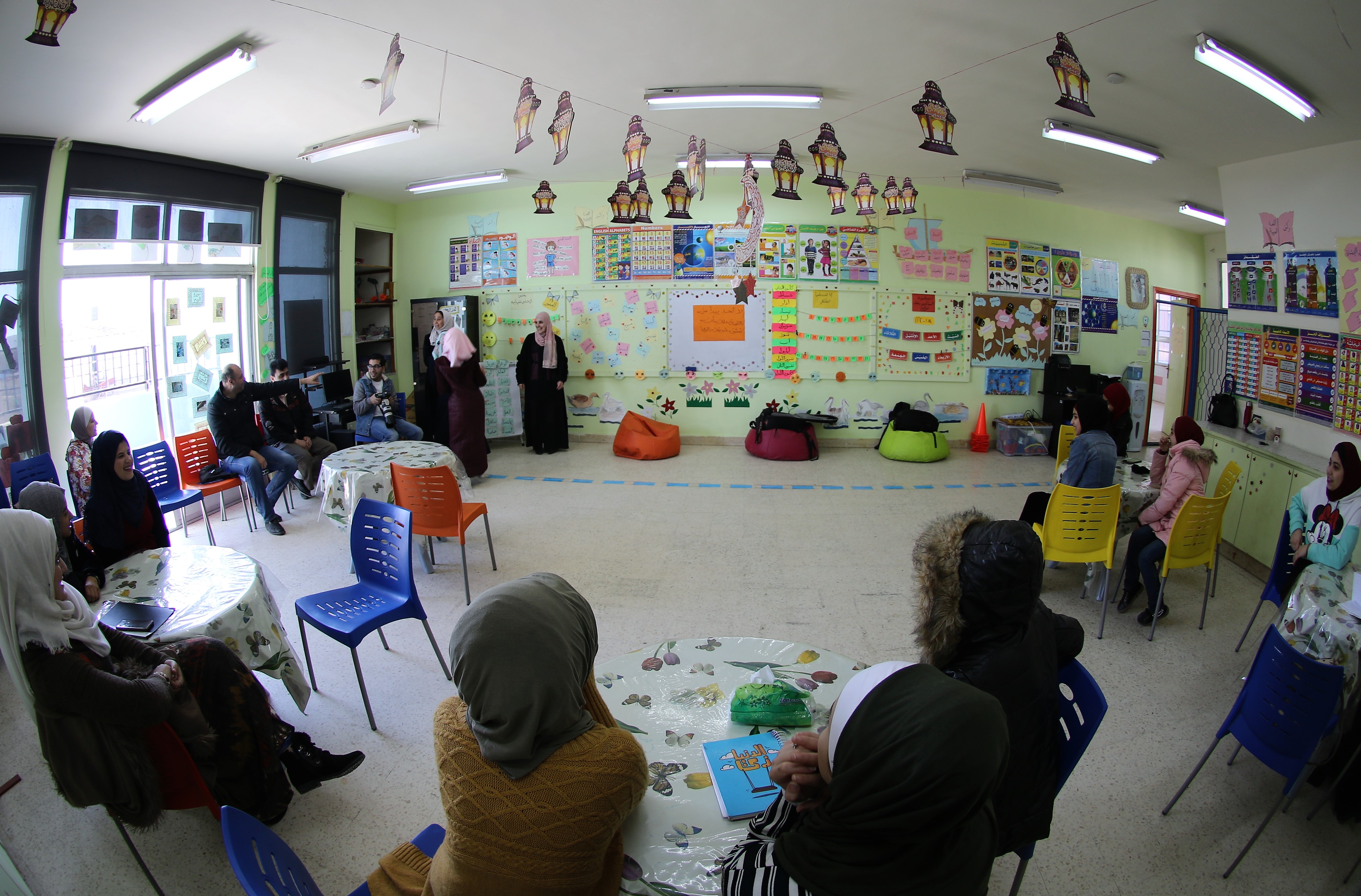I can see it in their fingers – plucking at strings, fiddling with bows, thumping on drumheads, tapping on electronic keyboards.
I can glimpse it in their eyes. They lose themselves somewhere, ever so briefly, as they coax music out of instruments of wood, steel and skin in their hands. They go far away, moving to music they can hear only inside themselves, at first.
I can feel it in the notes they play that become music that I can hear. Week by week, month by month, they get better. The talent in their souls expresses itself through the skill of their fingers.
Can these really be Syrian refugee youth in a refugee camp in a dusty, dry corner of northern Jordan? Yes!
Musicians, even very “early” ones, seem to have a “thing” about their music. They want to share it; to share the emotions they create with their sounds. They want to perform, to reach out to others with their talents, their gifts. It’s like looking at a sunset – you turn to your friend to ask, “Did you see that?”
Performing, sharing, reaching out is not limited by the fences that surround that refugee camp. With sponsorship of donor friends, we constructed a top-of-the-line sound studio in the Questscope space in the camp to record the melodies, the songs, the evidence of talent and dreams that refugee youth are creating. This has opened the door for the release of digital recordings to share and sell. Spotify, anyone?
This studio also provides time and space for other people in the camp to generate their own productions.
And now we have trained two refugee youth as certified sound technicians who manage the studio. Careers for them. Music for everyone.
One of our sound techs had to leave behind everything in Syria when he came to the Zaatari refugee camp in Jordan. But he brought a love for music and his determination to learn to play the violin. An impossible dream. But he did it with Zoom and You Tube and hours of practice. He went even further in studying music theory and now composes pieces for several instruments. He pays this talent forward as he instructs other refugee youth who participate in our music program.
Can these really be Syrian refugee youth in a refugee camp in a dusty, dry corner of north Jordan? Yes! Double yes!!
What makes this dry, dusty corner of Jordan a place where talent can bloom? I think three things:
▪ Inspiration – our vision that refugees are not a problem to be solved, but people to invest resources in to rebuild their futures.
▪ Perspiration – their commitment to train, to put in the hours and self-discipline for their talent to turn dreams into reality.
▪ Dedication – the generosity of friends with funds who see beyond the discouragements of today and envision how to reach the long goal of encouraging youth by providing resources for a second chance to rise.
I love being part of these three things– vision, discipline and generosity. I hope you do too!
We are a rare combination of people, we are! Let’s keep it up!
Curt



